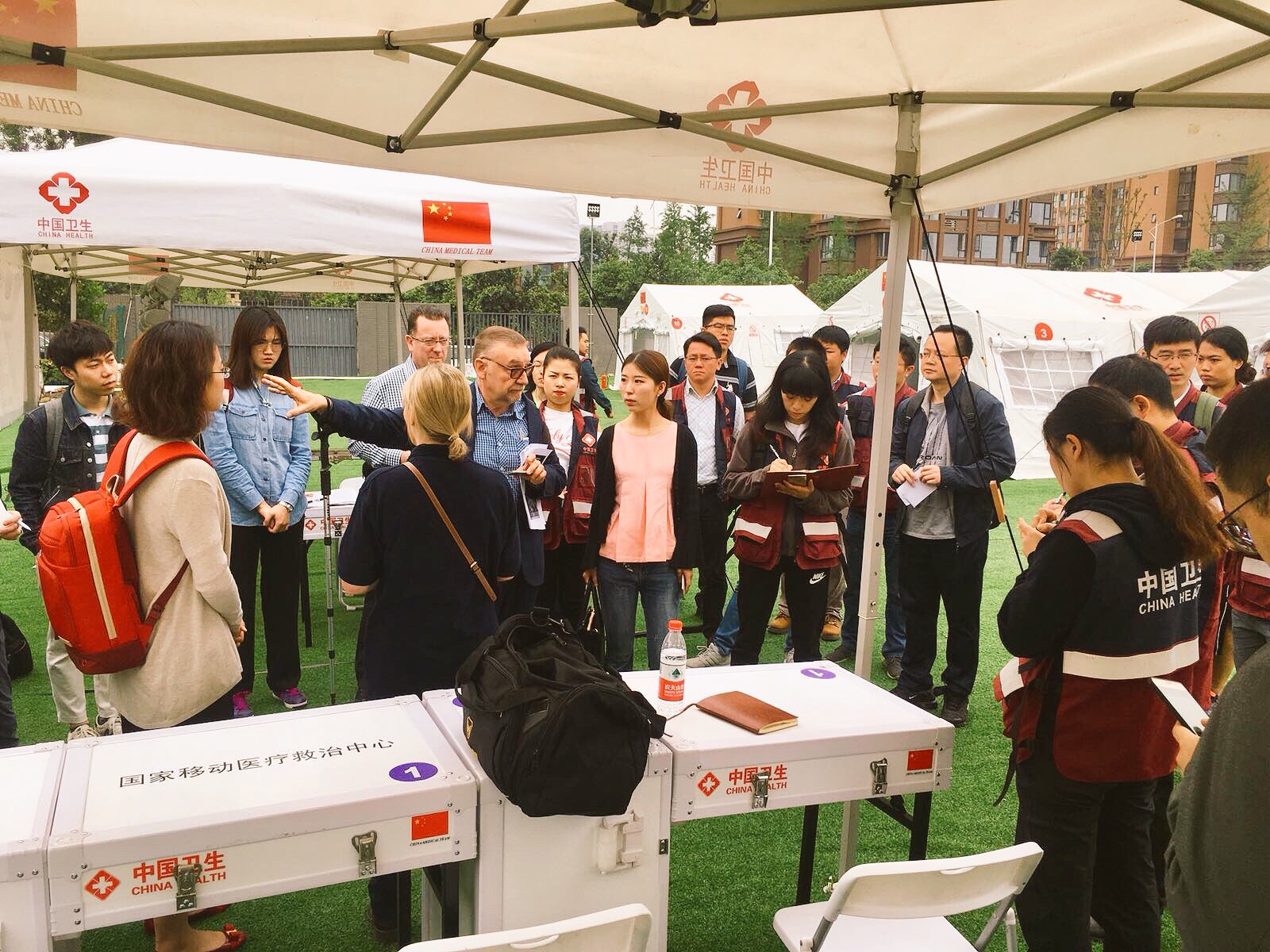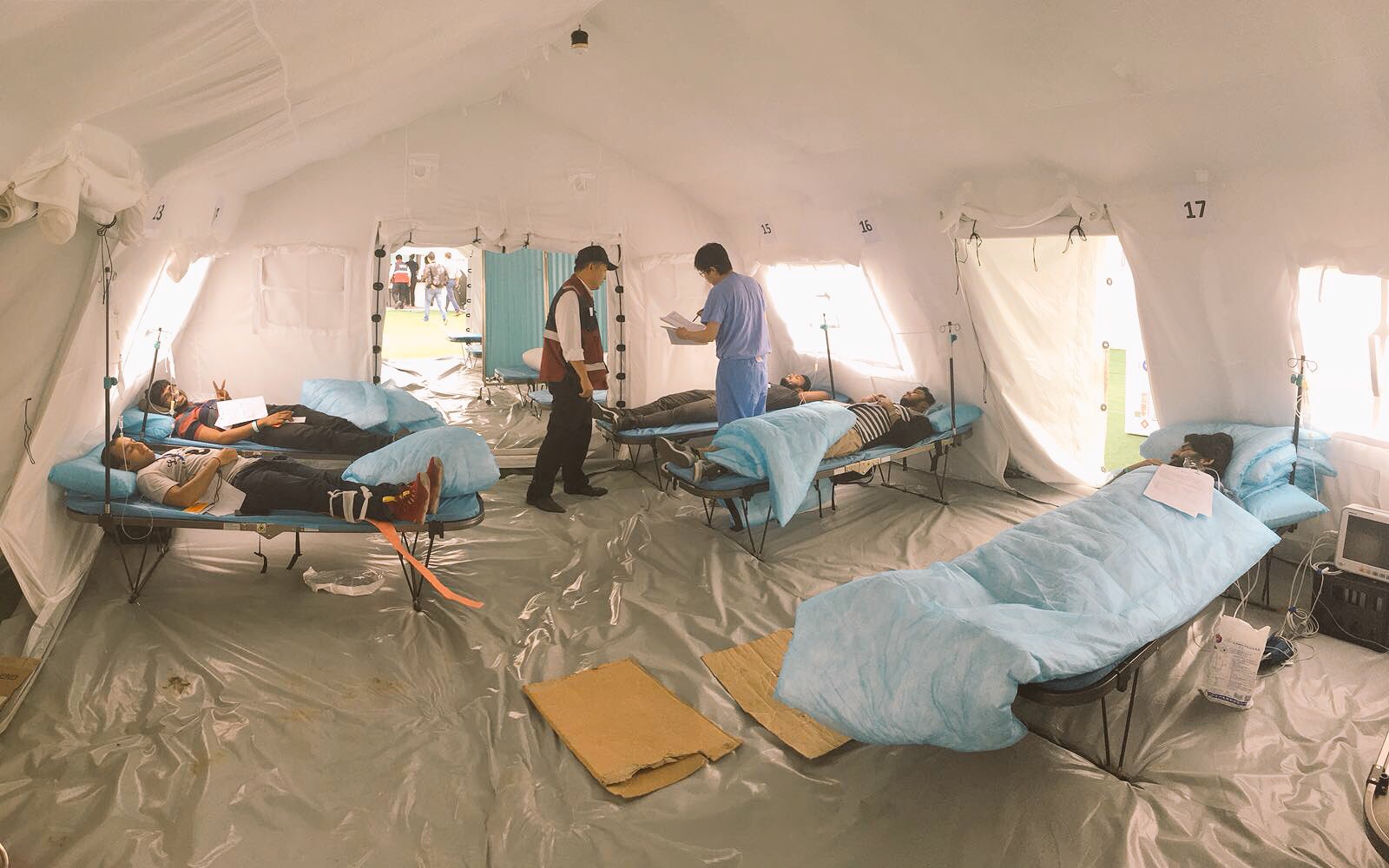International EMT Training Programme: West China Hospital of Sichuan University
This blog was written by Dr Andrea Bartolucci, Research Associate at HCRI. Andrea is working on the HCRI EMT program within the WHO Global EMT Initiative. His research aims to support the development of a training curriculum for EMT with reference to WHO Global EMT classification and standards. Find more information about our academic staff here.
From the 9th to 13th of April 2018, a joint delegation from HCRI and UK-Med delivered an International Emergency Medical Team (EMT) training programme to West China Hospital of Sichuan University in Chengdu, Sichuan Province, China.
The team was formed of the HCRI research team and a core staff team from UK-Med. They were asked to deliver a special medical training programme, and support the medical staff during the visit. The mission was led by Professor Tony Redmond who is supporting the China Team through the World Health Organisation (WHO) verification and classification process, through his role as main WHO mentor.
The visit was organised in collaboration with Hong Kong Jockey Club Disaster Preparedness Response Institute, Hong Kong Academy of Medicine, based around the World Health Organisation (WHO) Emergency Medical Teams (EMTs) Initiative. The main objective of this training visit was to support the capacity building of the West China Hospital International EMT, which has applied to be classified and verified under the WHO Global EMT Classification List. The visit also aimed at accelerating the development of an international accreditation and certification process of disaster response training based on WHO standards with a focus on China and Asia.
The West China field hospital is a type 3 EMT with the capacity to provide complex inpatient referral surgical care including intensive care capacity. Its key attributes include the screening of referred and new patients, surgical triage and assessment, complex reconstructive wound and orthopaedic care, enhanced X-ray, sterilisation, laboratory, blood transfusion, rehabilitation services, high level paediatric and adult anaesthesia, and intensive care beds with 24/7 monitoring and ability to ventilate 40 inpatients.
More than 140 doctors, nurses and team leaders were involved in the training. This consisted of classroom lectures on EMT-related topics, such as the contexts of EMT deployment, WHO standards and humanitarian principles for coordination, and guided walk-throughs of the various departments of the field hospital as a patient would see them.
The West China team worked very hard and saw great improvements in their organisation. As reported by Professor Tony Redmond, in terms of skills and equipment, their progress was extraordinary.
On the last day a full simulation exercise was performed; the hospital was fully activated and several mock patients were brought in and treated in real time. The engagement and commitment of the Chinese staff was remarkable, showing not only their medical competencies but also their impressive capacity to problem-solve. This was the first simulation exercise undertaken by the staff of the West China Hospital, and the UK-Med register members observing them reported highly positive feedback.
Find out more about HCRI’s work as a WHO Collaborating Centre here.





0 Comments